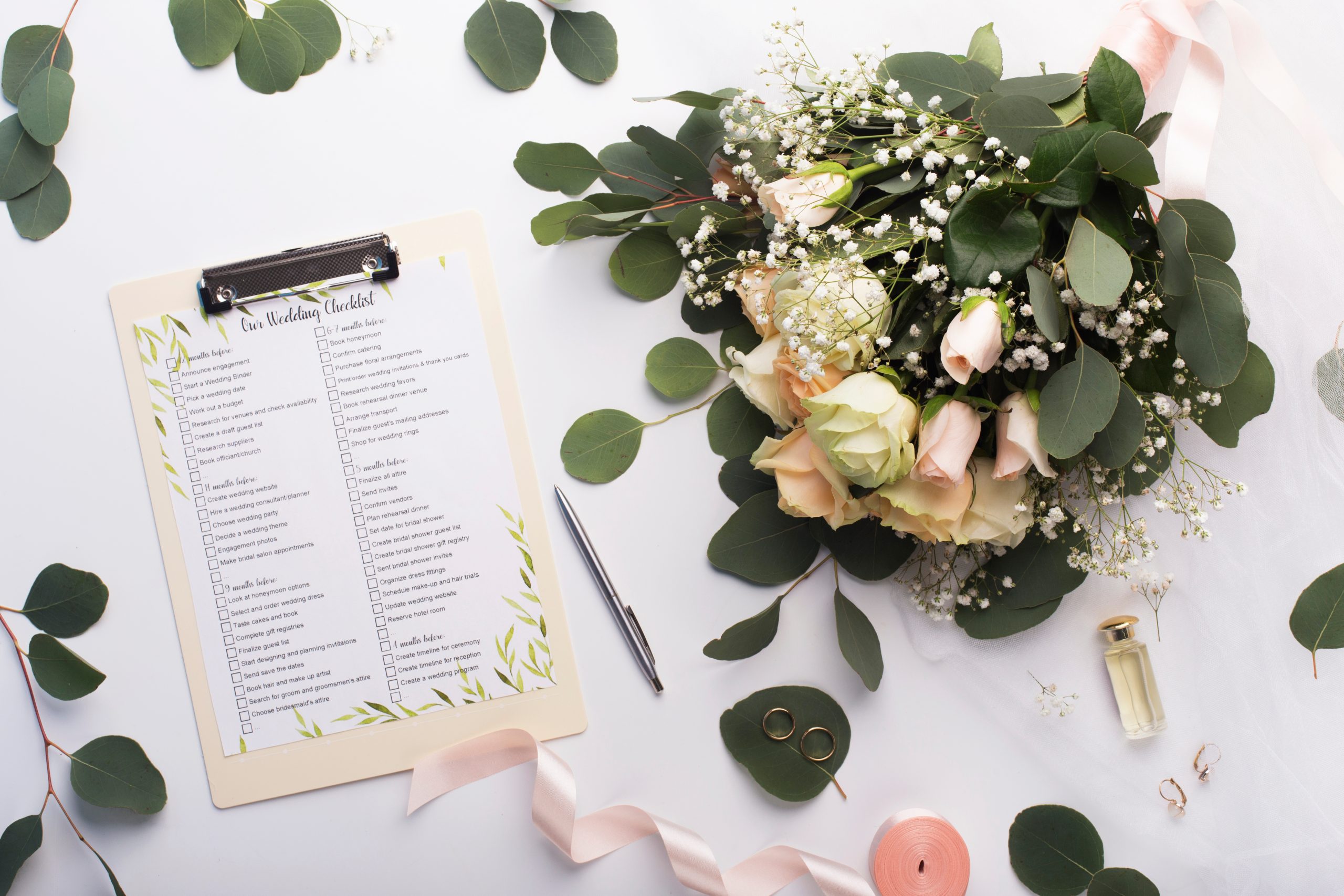A wedding budget is crucial for most couples looking to say ‘I do,’ but far too often, couples find themselves going over their original bottom line. It’s easy to get caught up in shiny options and expensive upgrades that you may be presented with. And it’s even easier to lose track of your spending if you’re not keeping organized and staying on track with your budget.
Don’t fret – this article is all about how to avoid those troublesome scenarios and keep focused on what’s most important – getting married! Keep reading for nine tips to avoid overspending on your wedding.
Set a Realistic Budget
Have you and your sweetie sat down to discuss your budget? This is the first step to throwing a fabulous event that doesn’t damage your bank account. Communicate openly and speak frankly about the money you’re willing to put towards the big day. From there, you will be able to create a list of the details that are most important to you.
Maybe you want to allot more budget to a photographer and videographer than flowers and décor. This will allow you and your hubby to make realistic budget decisions by narrowing down the essential things. It’s crucial to educate yourself on how much each service and product will cost in order to best structure your list of must-haves and see where you may need to pull back in other areas to make it work.
Create a Wedding Savings Account
Once your budget is set and you’ve decided on a comfortable number for you both, do yourself a favor and open a separate saving or checking account that is solely for wedding expenses. This will allow you to add in what you already have set aside for wedding expenses or begin contributing with a certain goal in mind. All of your wedding expenses should be charged to this account and this account only. This way, it will be super easy to track expenses and manage your budget!
Dedicate Time to Planning
Believe it or not, planning your big day can be stress-free without missing any details. Set aside time in advance for wedding planning duties, and be sure to refer back to your budget and checklist regularly. It’s easy to get distracted by daily life! A busy day at work or a hectic social calendar can make it easy to just say ‘yes’ to questions or details. By carving out time to do your wedding homework, you will be more focused and less inclined to make hasty or expensive quick decisions.
Compare Prices
The best way to avoid overspending and make sure you are getting the most competitive price for a service or product is to do some comparison research. Get lots of quotes in the beginning and narrow down your options based on price and the overall style you prefer. Small savings here and there can really add up!
Also, be sure to ask questions when speaking with a vendor to ensure you get what you need for a price you are comfortable with. Many vendors will work with you on costs or give you add-ons at no charge, especially if the event is during off-peak wedding season. It never hurts to ask!
Consider Off-Peak Seasons
If you’re working with a strict budget, it could be much easier to stay on track if you choose to wed during an off-peak time. This usually refers to the winter months, but also can include summer months like July and August. Peak (most popular) times of the year to get married are typically spring and fall, so to avoid overspending, avoid this time of year.
Book Big Things First
Pay for the most important things first. This may seem simple, but a lot goes into it! Beyond the venue, some of your other must-haves probably include the dress, photographers, food, music, and flowers. Book these essentials first so you will have a better idea of what’s left to spend on extras.
Don’t Forget Fees
While most vendors are upfront and transparent about the fees associated with their services, it’s still a good idea to ask about any additional ones that could arise. For example, does your DJ charge a higher rate for any extra hours they continue with the music? Or is there a transportation fee with the catering company? Be sure to read contracts carefully and ask all of your vendors in advance if there are any additional fees you might incur.
For your wedding venue, you will also want to keep in mind any service fees that they charge to cover things like parking attendants and extra staff. You could also be charged for bringing in vendors that are outside of their approved vendor list, such as caterers or florists. Ask in advance about service fees, as well as any costs for setting up, breaking down, and cleaning up the space.
Be Mindful of Taxes & Gratuities
Although not hidden, taxes and gratuities can sneak up on you. While there’s no avoiding paying taxes (which vary in percentage from state to state), you can set aside extra money or plan for these expenses in advance. The same goes for gratuities that you will likely pay for all of your vendors’ hard work.
Make Hard Cuts
When you’re down to the wire with wedding planning, you might start to feel like your budgeted dollar amount is approaching fast. This is the time when you may have to make some cuts or scale back. Before things go overboard (and over budget), review what you have secured so far and identify any extras that you no longer feel are necessary or where you can swap for a less expensive option. The best way to avoid making sacrifices at the very end is by reviewing your budget regularly throughout your wedding planning process. This way, you can make cuts as you go, which can be less stressful and ultimately more efficient.
While remaining on budget takes effort, it’s not impossible. We hope these tips help you stay on track and plan the wedding of your dreams – without breaking the bank.




